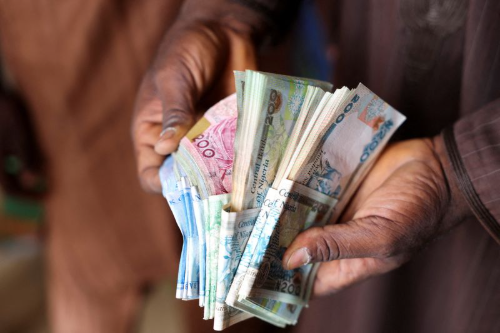Nigeria’s Annual Inflation Rate Slows for Second Month in a Row

TLDR
- Nigeria’s annual inflation rate eased for a second straight month in May 2025, falling to 22.97% from 23.71% in April
- Food inflation, a major contributor to overall inflation, also declined slightly to 21.14% year-on-year, supported by improved supply chains and seasonal harvests
- The data comes after the NBS rebased its Consumer Price Index in January 2025, shifting the base year to 2024 and adjusting the inflation basket
Nigeria’s annual inflation rate eased for a second straight month in May 2025, falling to 22.97% from 23.71% in April, according to data released by the National Bureau of Statistics (NBS) on Monday. Month-on-month, the inflation rate slowed to 1.53%, down from 1.86% in April.
Food inflation, a major contributor to overall inflation, also declined slightly to 21.14% year-on-year, supported by improved supply chains and seasonal harvests. However, prices of staples like yam, cassava, maize flour, and fresh pepper rose monthly, pushing food inflation up to 2.19% from 2.06%.
Urban inflation stood at 23.14% year-on-year, while rural inflation dropped to 22.70%. Core inflation, which excludes volatile items, declined to 22.28% year-on-year and 1.10% month-on-month.
The data comes after the NBS rebased its Consumer Price Index in January 2025, shifting the base year to 2024 and adjusting the inflation basket. The new methodology recalculated inflation at 24.48% in January, down from 34.80% in December 2023 under the previous system.
Despite the slowdown, analysts caution that food inflation and fiscal uncertainty remain risks. The Central Bank of Nigeria held interest rates steady in May, signaling a shift toward policy consistency to anchor inflation expectations.
Daba is Africa's leading investment platform for private and public markets. Download here
Key Takeaways
The continued moderation in inflation offers cautious optimism for Nigeria’s financial markets. For fixed-income investors, a slower inflation rate may stabilize real returns, potentially unlocking more demand for naira-denominated debt. In the equities market, reduced macro uncertainty could support a reallocation into growth stocks, especially in consumer-facing sectors sensitive to price stability. Yet, structural risks remain. Food inflation—though easing—remains elevated compared to pre-reform levels. The sharp changes in fuel pricing and naira devaluation in 2023 created cost-push effects that continue to ripple through household consumption. Regional disparities in inflation also signal uneven recovery, with states like Borno recording food inflation as high as 64.36% year-on-year. On the monetary side, the Central Bank’s decision to pause rate hikes after aggressive tightening in 2023 marks a pivot. With inflation trending down, the focus now shifts to maintaining naira stability and rebuilding policy credibility. Investors will be watching closely for signals of coordinated fiscal and monetary policy as Nigeria navigates structural reforms, global commodity volatility, and domestic political pressures.

Next Frontier
Stay up to date on major news and events in African markets. Delivered weekly.
Pulse54
UDeep-dives into what’s old and new in Africa’s investment landscape. Delivered twice monthly.
Events
Sign up to stay informed about our regular webinars, product launches, and exhibitions.




